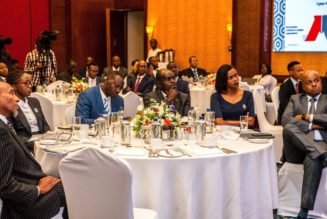
Micro, small and medium enterprises (MSMEs) play an instrumental role in the Kenyan economy. It is estimated there are over 7.4 million MSMEs in Kenya and employing more than 15 million people. In Africa, MSMEs are the driving force of economic development accounting for 90 percent of all businesses.
MSMEs’ also serve as a channel for new ideas and innovations to penetrate the market, hence contributing towards economic diversity and productivity.
The government’s Bottom-Up Economic Transformation Agenda positions MSMEs as one of the pivotal elements in the economic revitalisation and inclusive growth goals. The Sustainable Development Goal 8 recognises MSMEs’ contribution to ending poverty, hunger and creating decent work. Despite, MSMEs continue to face several challenges; key among them being constrained access to finance.
The problem is compounded by the prevailing high interest rates in the Kenyan market and the government’s borrowing in the domestic markets. When the government borrows extensively, it typically competes with private borrowers (including MSMEs) for funds.
This competition tends to drive up interest rates in the market. MSMEs, which often have higher perceived risk compared to government debt, may find borrowing more expensive. These decisions may lead to unintended consequences, especially considering the ongoing challenges posed by the Gen Z protests in the country.
The Credit Guarantee Scheme, established by government to incentive banks to lend more to MSMEs did not address the challenges of affordable, flexible, and accessible credit to MSMEs. Many banks preferred allocating their resources to large enterprises rather than to small businesses.
The Annual Performance report for the MSMEs Credit Guarantee Scheme (2022) indicated that by June 2022, only 2,490 MSMEs had benefited from the scheme. The government could explore expanding the scheme to effectively mitigate risks for a broader spectrum of small businesses.
Expanding credit guarantee schemes where the government provides guarantees to lenders (banks or financial institutions) against losses on loans made to MSMEs will significantly help derisk MSMEs. This reduces the perceived risk for lenders and encourages them to extend credit to smaller businesses.
The government may also consider subsidies on loans to MSMEs, making borrowing more affordable and less risky for these businesses.
Furthermore, MSMEs remained a substantial contributor to the banking sector’s funding, representing 14.9 percent of total customer deposits in commercial banks and 59.5 percent in Microfinance Banks (MFBs) as per CBK 2022 Survey Report on MSME Access to Bank Credit.
Consequently, the players in the banking sector must develop specialised loan products specifically designed to meet the needs of MSMEs with flexible repayment terms, lower collateral requirements, and interest rates that reflect the risk profile of small businesses.
This extends to implementation of robust credit scoring models and risk assessment frameworks that consider the unique characteristics and challenges faced by MSMEs, enabling more accurate evaluation of creditworthiness and a risk pricing strategy that can accelerate access to credit by MSMEs.









